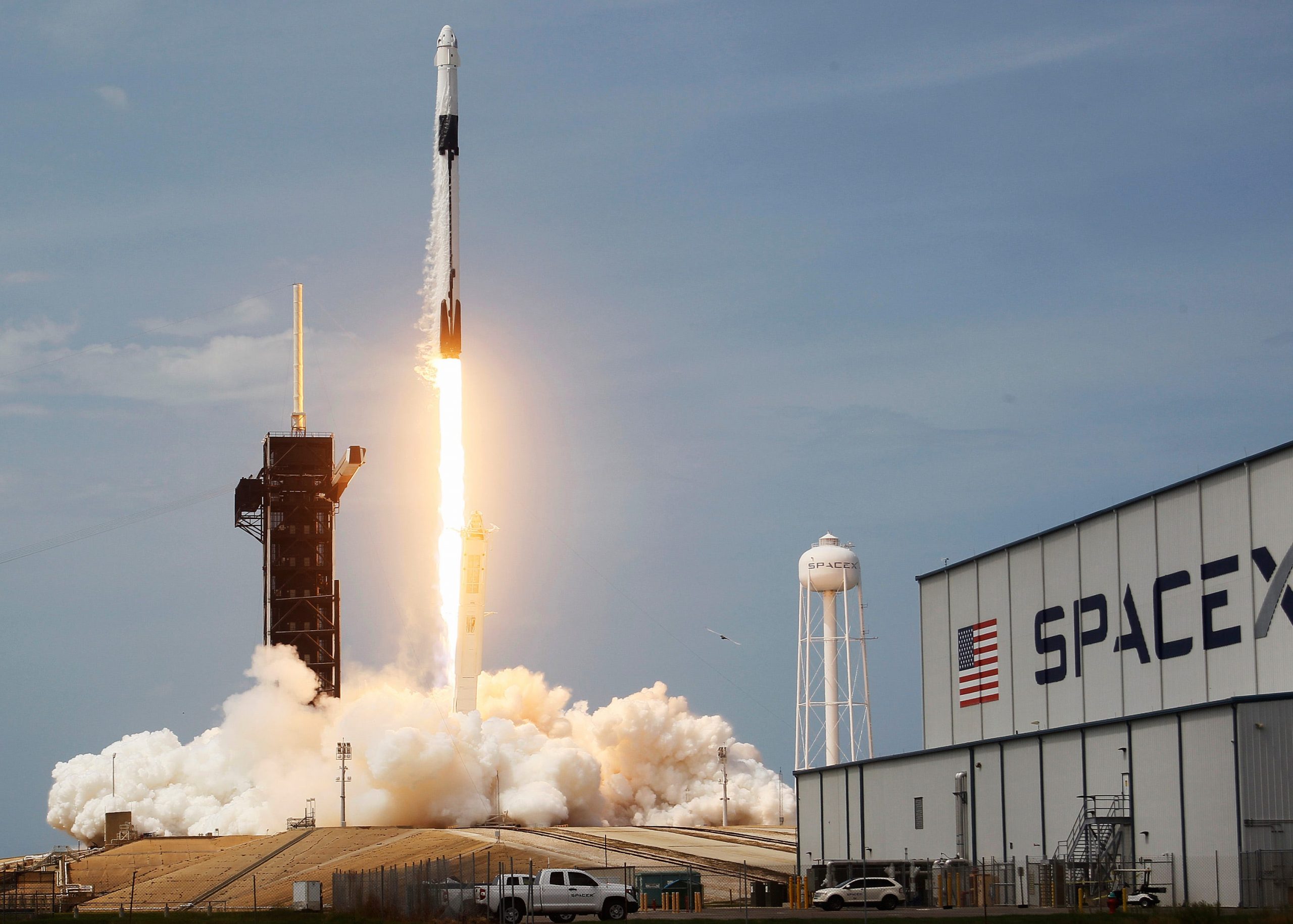
Joe Raedle/Getty Images
- SpaceX launched another 60 Starlink internet satellites into orbit on Thursday.
- It was SpaceX’s 20th successful Starlink mission.
- The reusable Falcon 9 rocket carrying the satellites lifted off from Kennedy Space Center at 3:24 am ET.
- Visit the Business section of Insider for more stories.
SpaceX on Thursday launched another 60 Starlink satellites into orbit, adding to its ever-expanding satellite internet network.
It was the 20th successful Starlink launch for SpaceX, and takes the number of Starlink satellites in orbit to 1,124. SpaceX CEO Elon Musk’s goal is to eventually have more than 40,000 satellites beaming internet down to users around the world – currently, the Starlink beta service has about 10,000 customers.
The Falcon 9 rocket blasted off from Kennedy Space Center in Cape Canaveral, Florida, at 3:24 am ET, marking SpaceX’s sixth Starlink launch of 2021. You can watch the full launch on SpaceX’s website.
—SpaceX (@SpaceX) March 4, 2021
This is SpaceX’s second rocket launch in 24 hours: The company flew its third Starship rocket prototype six miles above Texas on Wednesday. The rocket landed successfully, but exploded on the landing pad 10 minutes later.
The reusable Falcon 9 first-stage rocket booster for the Starlink mission has previously flown on seven other missions.
Following stage separation, the Falcon 9's first stage landed on the "Of Course I Still Love You" droneship in the Atlantic Ocean.
—SpaceX (@SpaceX) March 4, 2021
Musk's aerospace company crossed the 1,000 Starlink satellite mark on February 4, when it also delivered 60 satellites into orbit. A filing released the same day revealed Starlink had more than 10,000 users worldwide.
The launch was initially scheduled for Sunday night, but was aborted one minute before lift-off.
Andy Tran, SpaceX production supervisor, said during live launch commentary Sunday: "Overall, the vehicle and payload are healthy and remain in good health."
The flight was then moved to Monday 8:15 pm EST, but due to poor weather conditions it was delayed until Tuesday, and put back again for the same reasons until Thursday.
—SpaceX (@SpaceX) March 4, 2021
This isn't the first time SpaceX has had to call off launches and reschedule. The first Starlink mission of 2021 was postponed twice due to bad weather and safety inspections.
Musk's goal is to create a high-speed internet service that stretches across the world and provides connection to rural and underserved communities. SpaceX has said it wants to launch up to 42,000 satellites by mid-2027.
The company began testing its space-based internet service through its "Better Than Nothing Beta" in October, and it's now underway in the US, Canada, Europe, Australia and New Zealand.
Some users are reporting speeds of more than 200 megabits per second.
